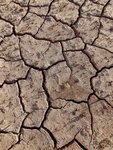 Narrowsburg
NarrowsburgLight Rain Fog/Mist, 43°
Wind: 8.1 mph
 Narrowsburg
NarrowsburgNow that we are about to experience the warmest parts of the year, it is important that we are prepared with basic knowledge about recognizing the symptoms of dehydration, along with how to prevent …
Stay informed about your community and support local independent journalism.
Subscribe to The River Reporter today. click here
This item is available in full to subscribers.
Please log in to continue |


Now that we are about to experience the warmest parts of the year, it is important that we are prepared with basic knowledge about recognizing the symptoms of dehydration, along with how to prevent this medical emergency in the first place.
Dehydration occurs when the amount of water leaving the body exceeds the amount of water being taken in. Water is critical for our health and well-being. Our body weight is composed of over 75 percent water. Most of our fluid resides in body cells with a smaller amount in our blood vessels.
We routinely lose water by breathing out humidified air from our lungs. Fluid loss also occurs from urination, defecation and sweating. Most of us drink more than enough throughout the year to replace this kind of loss.
The severity of symptoms depends on the level of fluid loss. Common symptoms include the following: dry mouth, muscle cramps, nausea and vomiting, heart palpitations, lightheadedness (especially when standing or sitting up) and a decrease in urine production. Also, the eyes can stop making tears and sweating can stop.
With severe dehydration, confusion and weakness will occur as the brain and other body organs receive a smaller volume of blood. Finally, coma, organ failure and, eventually, death will occur if the dehydration remains untreated.
Diarrhea can be a source of significant fluid loss.
Vomiting is also a common cause of fluid loss because it is difficult for a person to replace water by drinking it if they are unable to tolerate liquids.
Sweating is part of our body’s way of cooling. The body uses a significant amount of water in the form of sweat to maintain our core body temperature. For example, a brisk walk during the warmest part of the afternoon may generate up to 16 ounces of sweat (a pound of water) to allow body cooling, and that water needs to be replaced.
Diabetics with elevated blood sugar levels spill sugar and water in urine, leading to frequent urination.
Medication such as diuretics can cause dehydration.
Burn victims become dehydrated because the damaged skin cannot prevent fluid from seeping out of the body
Not having fluids available to drink leads to dehydration, which is compounded with routine water loss or from disease.
In heat-related illness, the body’s attempt to cool itself by sweating can increase dehydration to the point that muscles may go into spasm; this is known as heat cramps. As fluid loss increases, the patient may dehydrate to the level that there is not enough water to sweat and heat exhaustion or heatstroke may occur. Confusion or delirium and lack of responsiveness are hallmarks of heatstroke. This is a true medical emergency that requires rapid transport to an emergency room.
It important to seek urgent care from your doctor or the closest emergency room if you or someone around you are experiencing muscle cramps, feeling feverish, acting confusing, or feeling dizzy when attempting to stand or walk.
Fluid replacement is the treatment for dehydration. This may be attempted by replacing fluid by mouth, but if this fails, intravenous fluid (IV) may be required. Oral rehydration is accomplished by frequent sipping of small amounts of fluids such as water, clear broth, popsicles, Jell-O and other replacement fluids that may contain electrolytes such as Pedialyte, Gatorade, or Powerade.
Dehydration from weather is preventable. If possible, activities should not be scheduled in the heat of the day. If they are, adequate fluids should be available and cooler, shaded areas should be used if possible. Those working in hot environments need to have water available to rehydrate.
If a person is exposed to high temperatures in their work or exercise on a regular basis, salt tablets to replace electrolytes are often recommended. However, the person should only take them under the supervision of the doctor because excess salt can cause increases in blood pressure.
People exercising in a hot environment need to drink adequate amounts of water—at least one quart per hour.
The young and elderly are most at risk. During heat waves, attempts should be made to check on the elderly in their homes.
Most of us enjoy our warm weather. As with preventing sunburn and protection from insect bites, we need to plan and make sure that we take water and other fluids with us when are spending a summer day outside, along with sunscreen and insect repellent.
Comments
No comments on this item Please log in to comment by clicking here